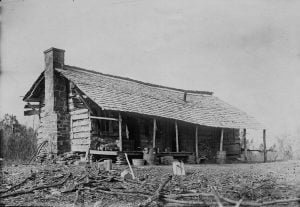Life Among the Choctaw Indians
Henry Benson worked as a missionary amongst the Choctaw at the Fort Coffee Academy for Boys in the mid 1800’s. In this manuscript he depicts the formation of the Academy and missionary amongst the Indians, providing valuable insight into the tribal customs of the Choctaw after they had been forcibly moved to the Indian Territory. He also provides glimpses into the lives of westerners before the Civil War in the south-west.

